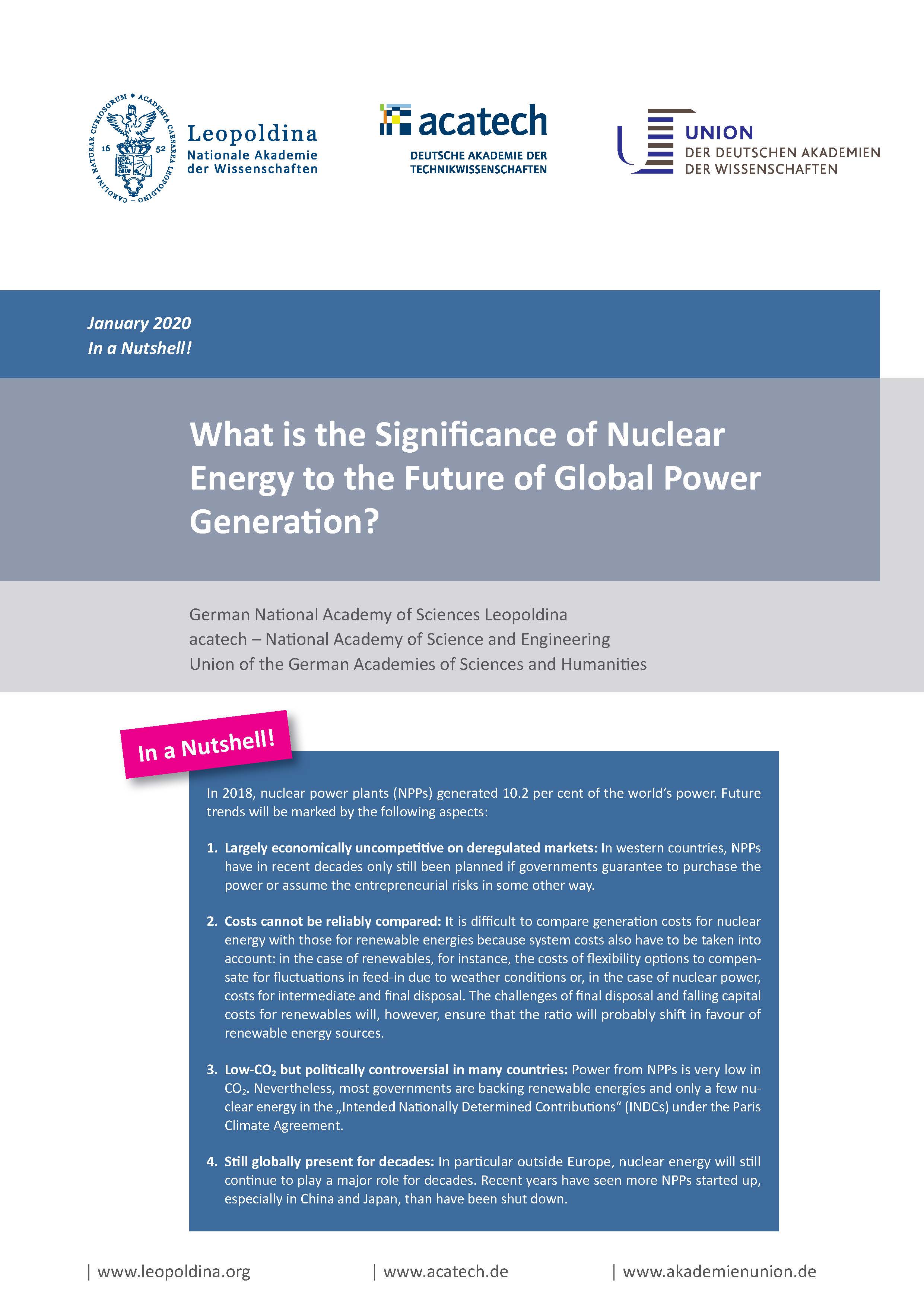While Germany is committed to shutting down all its nuclear power plants by 2022, other countries such as China, Russia and Japan are increasing the share of nuclear power in their energy mix. What role will nuclear power play in the future of both global electricity generation and climate protection? The joint Academies’ Project “Energy Systems of the Future” (ESYS) provides clear answers to these questions in its new publication format “In a Nutshell!”. The project’s experts conclude:
- Largely economically uncompetitive on deregulated markets: In western countries, NPPs have in recent decades only sti ll been planned if governments guarantee to purchase the power or assume the entrepreneurial risks in some other way.
- Costs cannot be reliably compared: It is difficult to compare generation costs for nuclear energy with those for renewable energies because system costs also have to be taken into account: in the case of renewables, for instance, the costs of flexibility options to compensate for fluctuations in feed-in due to weather conditions or, in the case of nuclear power, costs for intermediate and final disposal. The challenges of final disposal and falling capital costs for renewables will, however, ensure that the ratio will probably shift in favour of renewable energy sources.
- Low-CO2 but politically controversial in many countries: Power from NPPs is very low in CO2. Nevertheless, most governments are backing renewable energies and only a few nuclear energy in the „Intended Nationally Determined Contributions“ (INDCs) under the Paris Climate Agreement.
- Still globally present for decades: In particular outside Europe, nuclear energy will still continue to play a major role for decades. Recent years have seen more NPPs started up, especially in China and Japan, than have been shut down.




